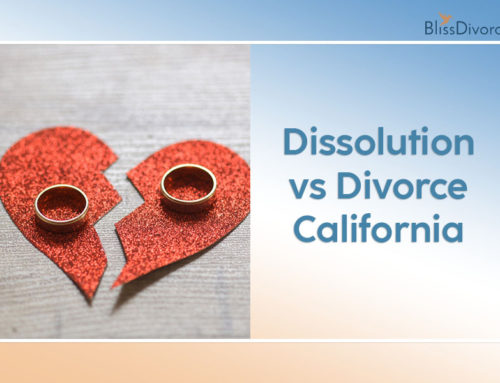Divorce isn’t easy, especially if you and your spouse own significant assets.
High-asset divorce is considered to be any dissolution of marriage in which the marital assets are worth one million dollars or more. Couples who usually own their home, own luxury motor vehicles, retirement accounts, and other investments like equities and second homes or rental properties.
High-asset divorces tend to take more time to reach divorce settlement and legal fees can skyrocket along the way. Apart from bearing emotional distress, going through the whole legal process of divorce can be demanding and painful.
To get some of the burdens off your chest, we have compiled a list of the most important things to do if you are having a high-asset divorce.
Here is everything you need to do to prepare yourself for divorce mediation or for litigation in court with the best result.

Source: shutterstock.com / Photo Contributor: ADragan
What to Consider When Preparing for a High-Asset Divorce?
High-asset divorces have a fair share of challenges, from estate evaluation, protection of businesses, and searching through and cataloging the assets owned, to determining adequate child support and spousal support..
Prepare important financial information
First and foremost, collect all the documents associated with your current financial situation, including your assets and debts. Whether you are getting a divorce mediation or going to court, a full view of your marital financial situation can help you get the desired divorce outcome.
When gathering the paperwork, it is recommended to group your assets into marital and separate. As a rule of thumb, you will need to make a list of:
- Employment status, including pay stubs and W-2s
- Tax records and returns
- 401K statements
- Records of your business
- Property mortgages
- Brokerage statements of investment portfolio
- Savings accounts
- Loans and credit card statements
- Life insurance statements
Take your time with the discovery and document preparation. Any intentional or accidental asset hiding can negatively impact the divorce settlement agreement or court decision.
Get a home and business evaluation
Stepping into the divorce process prepared and having your assets and businesses evaluated will give you a head start. You can get fair and precise assets division only if you know the value of your and your partner’s possessions.
In other words, by having a professional evaluation, you will have a clear picture of every asset you are walking out with and its current value.
Hire a high-asset divorce attorney
Since property division is complex, finding experienced legal representation or mediation will help. Take your time and carefully pick your mediator or legal representative and consider what is the best route for you and your family and the accessibility and experience you’ll need to support you along the way..
Additionally, compare the fees you will be charged during the whole process. Check if they charge by the hour or have fixed-price plans. Remember that high-asset divorces are more expensive than an average divorce in the US, which is $27,000. If things escalate, the divorce could end up costing you hundreds of thousands.
For instance, if you are getting a divorce in California, you get a fixed plan starting at $1,500 from BlissDivorce and you and your spouse could retain attorneys or mediators with hourly rates of $400 or more.
Consider the tax implications in a high-asset divorce
High-asset divorce often includes liquidating assets. Hence, you must be aware of the potential tax consequences of selling or transferring the assets. During your divorce, it’s best to consult a tax accountant before finalizing your assets and debts division. You will also want to make sure you understand the tax exemptions in divorce.

Source: shutterstock.com / Photo Contributor: Burdun Iliya
5 Myths and Facts About High-Asset Divorce
High-asset divorce brings along certain issues to the table that an average divorce doesn’t have to deal with. Here are some of the most common misconceptions about high net-worth divorce.
Not having a prenup will make the process harder
Every high-asset divorce case is different. With a prenup or without one, mutual respect between the sides guided by a mediator can result in a fair and reasonable agreement.
Litigation in court is the best solution
Naturally, you may think a court decision will be in your best interest. Lawyering up and court appearances can be painful and costly. Contrary to popular belief, divorce mediation has proven to be a more affordable, faster, and more effective way to end a marriage.
You shouldn’t pull out your estate plan before the divorce starts
One of the best pieces of advice is to pull out your estate plan before you file for a high-asset divorce. Reviewing your estate and removing assets you have planned for your children will eliminate the possibility of splitting the finances or assets.
Assuming your spouse’s inheritances will benefit you
Looking into the future and involving any future inheritances you or your spouse might have in the future, it’s not a good idea. In the long run, it will only bring financial harm and influence the alimony agreements and asset division.
An amicable divorce is not on the table for high-asset individuals
A big assets portfolio won’t make any difference in how you end your marriage; you can choose to end it peacefully. Some things that can help you do that are engaging in full financial disclosure and openly negotiating the settlement terms to protect your interest while also keeping in mind what is fair and reasonable for your spouse. At the end of the day, the legal requirements are not the only considerations. Taking the time to care about your and your family’s mental health while going through the process is also critical.

Source: shutterstock.com / Photo Contributor: sebra
Final Tip For High-Asset Divorce – Protect Your Privacy
Protecting your privacy and asking for a sealed divorce is something worth discussing with your legal team if you’re a victim of domestic violence, protecting the children who are identified in the divorce records, or keeping specific personal or business information confidential. However, seeking to seal the divorce decree is not easy to do.
A party requesting that a record be filed under seal must file a motion or an application for an order sealing the record. The motion or application must be accompanied by a memorandum and a declaration containing facts sufficient to justify the sealing.
*This article is for informational purposes only and is not intended to provide legal advice. If you require legal advice, please contact a licensed attorney in your local area.




